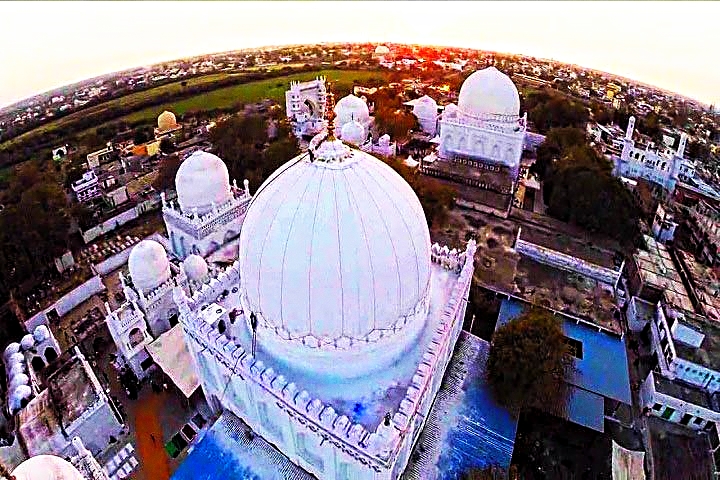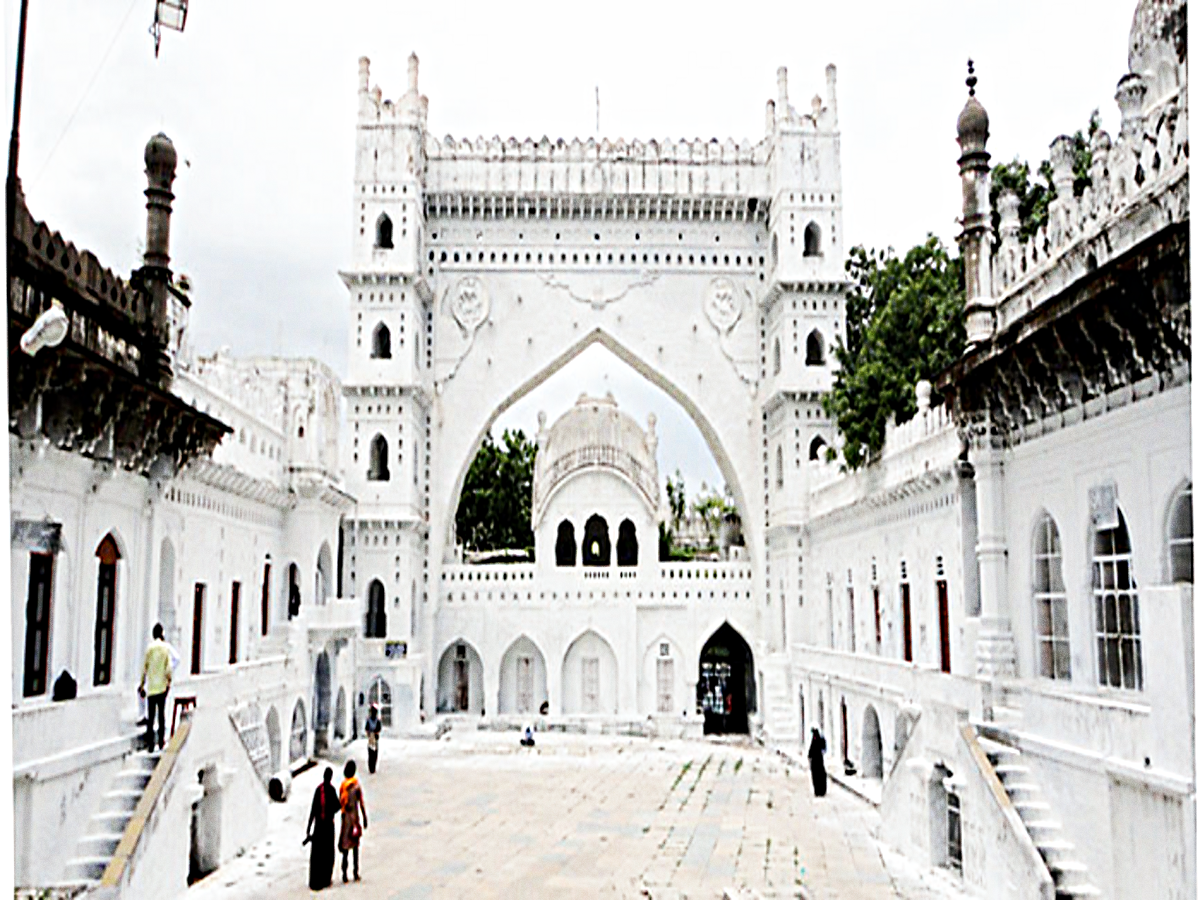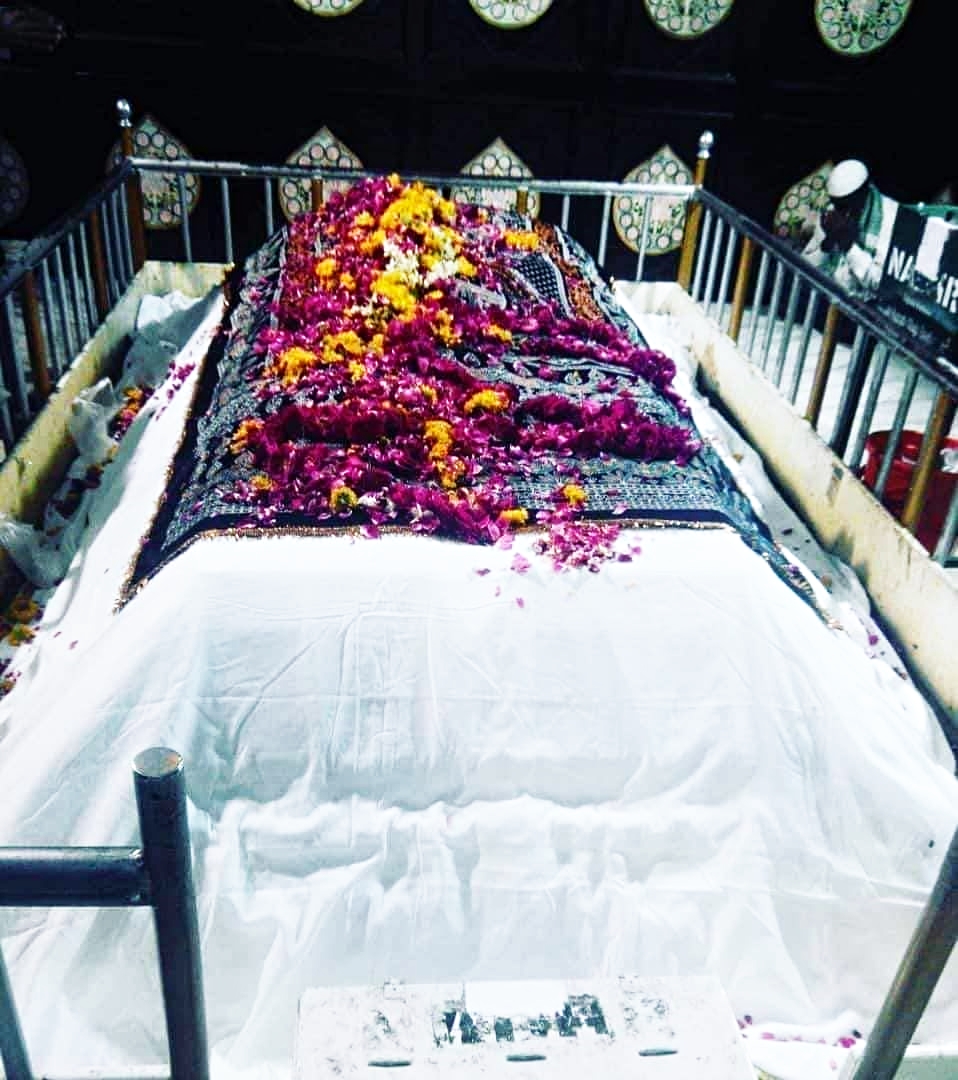Hazrat Khwaja Banda Nawaz Gaisu Daraz (R.A)
Khwaja Banda Nawaz (R.A) is a descendant of Hazrat Ali (R.A). His forefathers resided in Hirat. One of them came to Delhi and settled down here.
Muhammad Banda Nawaz Gaisu Daraz (R.A) was a Hanafi Maturidi scholar and Sufi saint from India of the Chishti Order, who advocated understanding, tolerance, and harmony among religions.
Description
LINEAGE
Khwaja Banda Nawaz (R.A) is a descendant of Hazrat Ali (R.A). His forefathers resided in Hirat. One of them came to Delhi and settled down here. His father Syed Wal Shareef Muhammad bin Yousuf was born on 4, Rajab, 721 Hijri and was a holy figure and devoted to Nizamuddin Auliya (R.A).
LIFE
Muhammad Banda Nawaz Gaisu Daraz (R.A) (7 August 1321 – 10 November 1422), was a Hanafi Maturidi scholar and Sufi saint from India of the Chishti Order, who advocated understanding, tolerance, and harmony among religions. At the age of four, his family shifted to Daulatabad in Deccan (now in Maharashtra). In 1397, he went to Gulbarga, Deccan (presently in Karnataka) at the invitation of Sultan Taj ud-Din Firuz Shah.
At the age of fifteen, he returned to Delhi for his education and training by Nasiruddin Chiragh Dehlavi (R.A). He was also a very enthusiastic student of Kethli, Tajuddin Bahadur and Qazi Abdul Muqtadir. He taught at various places such as Delhi, Mewat, Gwalior, Chander, Aircha, Chatra, Baroda, and Gulbarga.
His name, as well as a patronymic, was Abul-Fatah and Gaisu Daraz was his title. Among the scholars and theologians, he was Sheikh Abul-Fatah Sadr Uddin Muhammad Dehlavi (R.A) but people called him Khwaja Banda Nawaz Gaisu Daraaz (R.A).
At the age of 30, Hazrat Khwaja Banda Nawaz (R.A) is reported to have spent most of his time in jungles where he successfully accomplished all the spiritual stages.
At the age of 36, Hazrat Khwaja Banda Nawaz (R.A) was granted permission by Sheik Nasiruddin (R.A) to form his own disciples (Khalifa). One year later, Banda Nawaz (R.A) became the successor of Hazrat Nasiruddin (R.A) and took charge of the Khanqah. He married at the age of 40 and had two sons and three daughters.
At the age of 77, he undertook the same journey to Daulatabad, not as a little boy, but as Khwaja Banda Nawaz Gesu Daraz (R.A).
At the age of 80, he left Daulatabad with his family and disciples for Gulbarga in the state of Karnataka,
South India, spreading the message of universal brotherhood.
Hazrat Khwaja Banda Nawaz (R.A) became known among the Sufis as having attained the highest stage of a Sheikh in his youth. He had his formal education in Islamic, Quranic studies, Arabic Grammar, Prophetic Traditions, Theology, Law and Jurisprudence, Philosophy and Sufism. His love and compassion for people drew lakhs of devotees to him from all communities.
His ancestors came from the Sayed family of Khurasa and were popularly known as the “Sayeds with long-locks”. He obtained the title “GESUDARAZ” from Hazrat Syed Nasiruddin Chiragh Dehlavi (R.A) who on learning about the pain Banda Nawaz (R.A) endured quietly when his long hair was stuck in the foot of the palanquin that was lifted by the latter and his disciples, realised the true love and devotion that Banda Nawaz (R.A) felt for him. Hazrat Nasiruddin (R.A) became so emotional and to express his strong love and feelings for Banda Nawaz (R.A) recited the Persian couplet “Har ki murid Syed Gesu Daraaz shud Vallah Khilaf-enest ki Uoo ishq baaz shud.”
Hazrat Khwaja Bandanawaz (R.A) had a blissful experience of seeing that some persons made him wear seven robes which, according to Sheikh Nasiruddin Chiragh Dehlavi, symbolised the different spiritual and psychological stages that Khwaja Banda Nawaz (R.A) achieved. He was thus spiritually prepared to become a full-fledged Sheikh, ready for the successorship (khilafat) which he received in 1356 AD.
At the age of 101 years, he veiled himself from this material world on 16 Zul-Qa’dah, 825 (1st November 1422) in Gulbarga.
TEACHING
Hazrat Khwaja Banda Nawaz (R.A) was a scholar, a poet, and a writer of great repute. He was a leading exponent of the doctrines of popular mysticism through parables. He wrote more than 30 treaties and pamphlets, dealing with issues related to Religion, Theology, Commentary and Philosophy. He authored about 195 books in Arabic, Urdu, and Persian, of which 40 have been published, including his magnum opus Tafsirul-Multaqat.
Bande Nawaz wrote 195 books in Arabic, Persian and Urdu. His magnum opus, Tafseer Multaqat, was compiled into one book very recently. He also composed a book on the Prophet of Islam titled Miraj-al Ashiqin for the instruction of the masses in Dakhni, a South Indian branch of the Urdu language. He was the first Sufi to use this vernacular which was elaborated upon by many other Sufi saints of South India in later centuries. He wrote many treatises on the works of Ibn Arabi and Suhrawardi, which made the works of these scholars accessible to Indian scholars and played a major role in influencing later mystical thought. Other books authored are Qaseeda Amali and Adaab-al-Mureedein.
“To achieve greater heights, one should lower one’s profile: A tree laden with fruits bows down towards the earth unlike a barren tree” Humility is the quality that Allah wants to see in human beings. “A person with pious qualities is humble. If he finds a man with this quality, He bestows His blessings upon him. This Is True Wealth.”
LEGACY
Khwaja Banda Nawaz University was established in Gulbarga in 2018. It manages about twenty colleges, including the colleges currently operating under Khwaja Banda Nawaz Educational Society (1958), such as Khwaja Banda Nawaz Institute of Medical Sciences (2000). His Urs takes place on the 15th, 16th, and 17th day of Zul Qadah Hijri at the Bande Nawaz mausoleum in Gulbarga. Several hundred thousand people from different caste and religions gather to seek blessings and celebrate his Urs.












